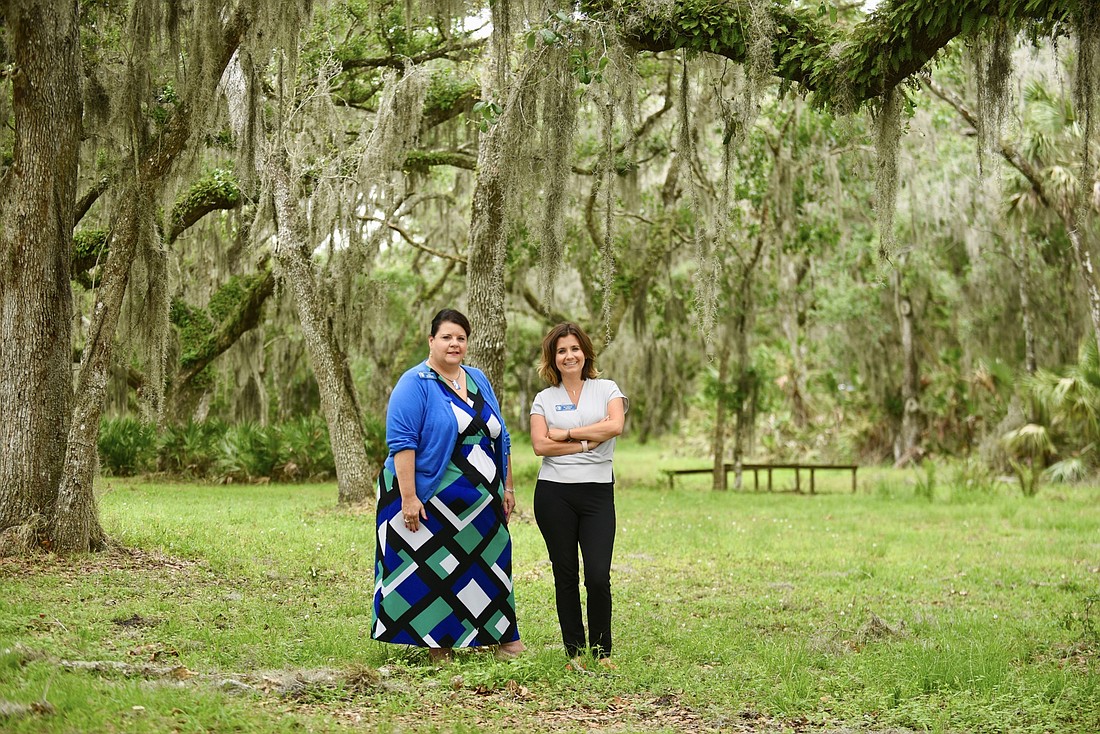- April 30, 2025
-
-
Loading

Loading

Sidney Turner had the aha! moment that would determine the course of her professional life while sitting in a 10th grade psychology class at Palo Verde High School in Las Vegas. “I was listening to the instructor and thought, ‘This is what I’m meant to do with my life,’” she says.
Turner has never wavered. She earned a bachelor's degree in psychology from the University of San Diego, then a master’s and doctorate in psychology from University of New Hampshire (plus a master’s in justice studies for good measure). Just 32, she is closing in on her dream: a facility that offers free treatment programs to adult abuse and trauma survivors, first responders and helping professionals. Called Resilient Retreat, it’s under construction on 84 acres of donated conservation land on Fruitville Road 8 miles east of I-75 in Sarasota.
Resilient Retreat is scheduled to open for three- and five-day live-in retreats in December 2022 and in the meantime is offering day programs online as well as on the property. It also operates a telephone help line Monday through Friday. The nonprofit’s menu of programs includes, or will include, neurofeedback, nature walks, meditation, yoga, massage, exercise, journaling, poetry, nutrition, art and equine and canine therapy. All are informed by an evidence-based focus on trauma.
“We don’t do much on the counseling side of things because it’s so widely available,” Turner says. “The support we provide is mostly through group activities, and much of the value is that people in the group have similar problems and can help each other. I didn’t want to get involved in insurance eligibility and claims and all that. It’s always been my plan to offer our services for free.”
The charity is also looking to fill another treatment gap. “There are a lot of organizations that deal with initial emergencies,” says Executive Director Lisa Intagliata, whose primary role at the moment is fundraising. “But there’s a shortage of ways that people who have experienced trauma can get care long term.”
Our collective mental health has certainly spiked to crisis levels over the past year and change, with COVID-19 drastically altering life as we know it and with violence and civil strife erupting at every turn. Trauma victims are likely to still be hemmed into highly stressful, even perilous, circumstances. Helping professionals — teachers, counselors, nurses, doctors and the like — have seen the demands of their work rise dramatically, which has caused what is called compassion fatigue. First responders are responding nonstop.
The need for a refuge like Resilient Retreat is obvious — and also measurable. Intagliata says that the number of people the organization has served rose 196% from 2019 to 2020.
This stress-everywhere environment has helped the charity, which is less than 3 years old, raise awareness and contributions. It was blessed with a fortunate start when an anonymous entity bestowed the parcel of land. Rather than knock on the doors of wealthy landholders, the nonprofit used the Conservation Foundation of the Gulf Coast to seek out tracts that owners were looking to preserve. Intagliata says the land is worth $2 million.
“Even if Resilient Retreat is gone tomorrow, that land is protected,” Turner says. “We have agreed to maintain it, which is fine because nature is such a big part of healing trauma and a big part of our programming.”
The charity needs roughly $6 million more to finish the brick-and-mortar part of its mission, Turner says. When completed, the retreat will include an 18,000-square-foot main building that will sleep up to 30 participants, plus a kitchen and other common areas and a separate 5,000-square-foot community center for day programs and events. The building will sit well off Fruitville Road to enhance privacy, peace and a sense of getting away from it all.
Resilient Retreat has a planned $8 million capital campaign that’s in what Intagliata calls its “quiet phase” — laying the groundwork, establishing a steering committee and other run-up activities. The organization currently has a paid staff of five and roughly 150 volunteers.
Turner knew before graduate school that she wanted to found a retreat-style facility. Uninterested in becoming a practicing therapist, her education was based in research. “It can take 20 years for university research to translate research to actual practice,” she says. “So I found the academic world a little bit frustrating. We tend to write papers, which we publish and then share with each other. Although that’s valuable, I was meant to get into direct service work.”
Turner chose Florida for her project because she’d spent considerable time visiting relatives on both coasts, and “the state is not known for being so great at providing mental health services.” In 2016, shortly after completing her doctorate, she and her husband, Troy, got in their car and scouted a number of areas. Sarasota/Manatee proved to be the best fit: It’s not too big, not too small; it has a robust philanthropic community; and, compared to a place like Naples, its population is relatively diverse.
When the center opens, Resilient Retreat plans to start by offering one retreat a month. That’s a beautiful thing, but the guests then return to what might still be very trying circumstances. What then? “They’ll walk away with a curated, customized [treatment] menu that focuses on the modalities that worked for them,” Intagliata says. “Plus, we’ll always be available to them through our regular daytime programs.”